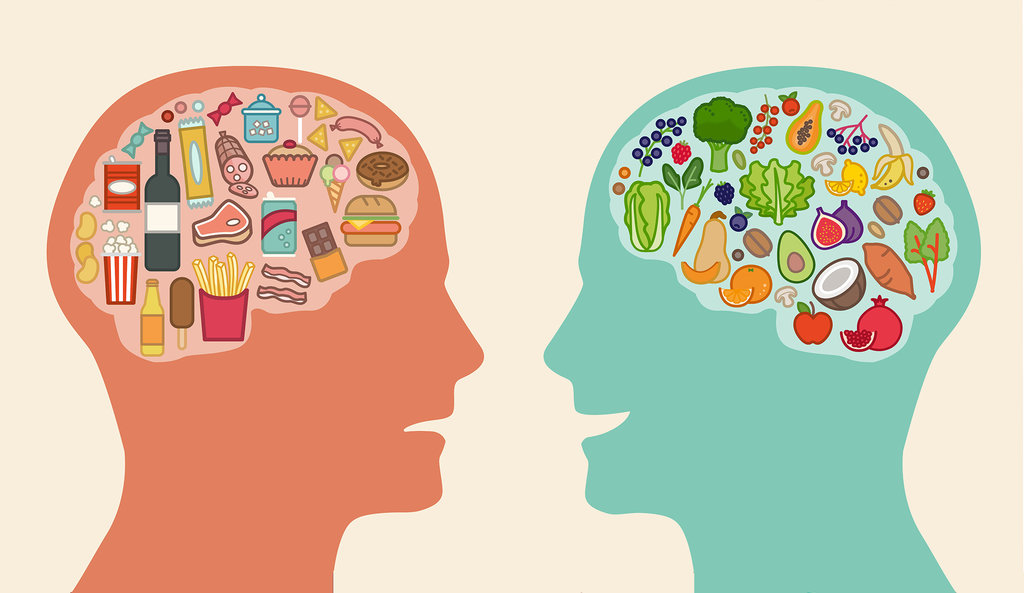Deficiencies in Vitamin B and other nutrients can play a role in depression
by Nancy Schimelpfening
If you have chronic depression, more than one factor may be causing your symptoms (low mood, lethargy, disinterest in things you typically enjoy doing, and so forth). One of these is a possible deficiency in one or more essential nutrients. This could be great news, because along with medication, therapy, and any other treatment your doctor prescribes, making simple changes to your diet may help you to feel better.
Only a medical professional can determine if you have a nutritional deficiency, so before you fill your fridge with new foods or stock up on supplements, get an official diagnosis. Keep in mind too that the body benefits most from vitamins and minerals that come from food rather than pills. In fact, even if you aren’t low in any particular nutrient, eating a balanced diet in general, one made up of fresh foods rather than processed ones, will help you feel better overall.
B-Complex Vitamins
The B vitamins are essential to mental and emotional well-being. They’re water-soluble, meaning they can’t be stored in the body, so you need to get them in diet daily. B vitamins may be depleted by alcohol, refined sugars, nicotine, and caffeine. Excesses of any of these can play a part in a B-vitamin deficiency. Here’s how each of the B vitamins may work:
• Vitamin B1 (thiamine). The brain uses this vitamin to help convert glucose, or blood sugar, into fuel. Without it the brain rapidly runs out of energy. Thiamine deficiencies are rare but can accompany alcohol use disorders and lead to a variety of psychiatric and neurologic symptoms.
• Vitamin B3 (niacin). A niacin deficiency can cause pellagra, a disease that can cause psychosis and dementia. Because many commercial foods contain niacin, pellagra has virtually disappeared. However, deficiencies of vitamin B3 can produce agitation and anxiety, as well as mental and physical slowness.
Vitamin B5 (pantothenic acid). Deficiencies of this vitamin are rare but may lead to fatigue and depression.
Vitamin B6 (pyridoxine). This vitamin helps the body process amino acids, which are the building blocks of proteins and some hormones. It is needed to make serotonin, melatonin, and dopamine. Vitamin B6 deficiencies, although very rare, cause impaired immunity, skin lesions, and mental confusion. A marginal deficiency sometimes occurs in alcoholics, people with kidney failure, and women using oral contraceptives. An older class of antidepressant, the monoamine oxidase inhibitors (MAOIs), has also been linked to deficiencies of vitamin B6, but these aren’t prescribed much anymore. Many nutritionally oriented doctors believe that most diets do not provide optimal amounts of this vitamin.
Vitamin B12. Because vitamin B12 is important for red blood cell formation, a deficiency can lead to anemia as well as a variety of neurologic and psychiatric symptoms.
Deficiencies take a long time to develop, since the body stores a three- to five-year supply in the liver. When shortages do occur, they are often due to a lack of intrinsic factor, an enzyme that allows vitamin B12 to be absorbed in the intestinal tract. This condition is known as pernicious anemia. Since intrinsic factor diminishes with age, older people are more prone to B12 deficiencies.
Folic acid: This B vitamin is needed for DNA synthesis. It is also necessary for the production of SAM (S-adenosyl methionine). A poor diet, illness, alcoholism, and certain drugs can contribute to folic acid deficiencies. Pregnant women are often advised to take this vitamin to prevent neural tube defects in the developing fetus.
Vitamin C
When too little vitamin C plays a role in depression symptoms, supplements certainly can help, especially if you’ve had surgery or an inflammatory disease. Stress, pregnancy, and breastfeeding increase the body’s need for vitamin C, while aspirin, tetracycline, and birth control pills can deplete the body’s supply.
Minerals
Deficiencies in a number of minerals have been associated with depressive symptoms as well as physical problems. Among them are magnesium, calcium, zinc, iron, manganese, and potassium. A nutritionist or dietitian can determine if you’re low in any of these minerals and suggest ways to include more of them in your diet.



